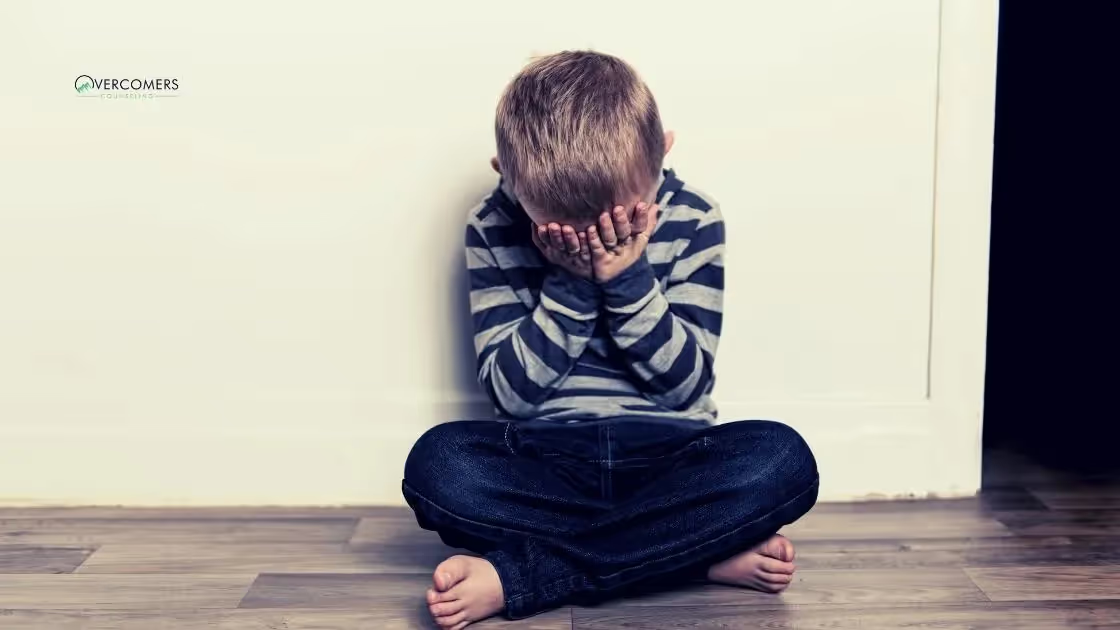Children often feel certain emotions like irritation, anxiety, confusion, anger, and frustration as they grow older. Although these emotions are normal,...

Children often feel certain emotions like irritation, anxiety, confusion, anger, and frustration as they grow older.
Although these emotions are normal, children don't have the emotional intelligence to handle them, thus causing them to become emotionally stressed easily.
Therefore, as their parent, you must take note of the signs of emotional stress in your child to offer guidance.
One sign of emotional stress is regular nightmares and sleeping disorders.
Nightmares cause a repeated cycle of stress and sleepless night in kids, causing them not to function properly at home or school.
Also, when children suddenly eat more or less food, they are probably stressed about their body image.
Children are easily influenced by what they see or hear, so if someone at school calls them fat or thin, they will likely believe it.
To correct this, parents should teach their children body positivity and say nice things about their looks.
Similarly, showing anger, irritability, and overreacting to minor problems can signify they are stressed.
Often kids have difficulty processing their fears and tend to release them by throwing anger tantrums and sudden outbursts.
Consider this review to learn warning signs of emotional stress in your child:
Nightmares are one of the signs of emotional stress in your child.
It can result from traumatic or stressful experiences at home or school.
While it is normal for kids to experience at least one nightmare, it can become a headache when it leaves your kid sleep deprived and scared of sleeping.
Children often have difficulty dealing with nightmares because it feels real to them.
They can experience difficulty returning to sleep or try to avoid sleep because of fear.
As a parent, you can help by reassuring and comforting them at night.
You can also give your little ones cuddles before bed or offer to sleep next to them.
Also, you can help your child by encouraging them to talk to you about their nightmare during the day.
Ensure you take their explanation seriously, even if it seems funny.
Reassure them that they are safe and help them build their confidence and coping skills.
Similarly, you can ensure they have a happy and light bedtime routine.
Your child should stop watching scary movies or reading frightening bedtime stories 30 to 60 minutes before bedtime.
Signs of emotional stress in your child include increased anger, irritation, and aggression.
Unlike adults, kids find it more challenging to handle pressure, causing them to resort to angry tantrums and hot-headed outbursts.
Being unable to cope with school activities, peer pressure, and problems with friends can cause a child to feel stressed out.
They lash out by biting, hitting, kicking, name-calling, and screaming.
Rather than getting offended at your child's aggressive behavior, help them manage their emotions.
It is your responsibility as their parent to you should teach them stress and anger management skills.
When they start throwing tantrums, teach them to practice deep breathing activities and think about their happy moments.
They can also say affirmations like "I am capable," "I am good at solving problems," and "making mistakes help me grow."
Withdrawal is also one of the common signs of emotional stress in your child.
Children who socially withdraw prefer solitude due to anxiety, social fear, or inability to cope with their many responsibilities.
When you notice signs of withdrawal, offer your child attention and maintain family routines to comfort them.
They might act like they are okay alone but let them know you are always going to be there for them.
School bullying can often cause children to be stressed and withdraw from friends and family.
You can carefully ask them questions about school without forcing them or making them scared.
Genuinely show interest in their school activities and relationship with friends.
Similarly, you can speak to your child's teacher if they aren't telling you what the problem is.
They might be having issues in school they don't know how to talk to you about.
Have regular interactions with their teachers to know their education performance and behavior in school.

Suddenly eating more or less than the regular food intake is also one of the signs of emotional stress in your child.
When kids feel bigger or smaller than their age mates, they tend to cope by adopting unhealthy eating habits.
Eating disorders can cause anorexia, a condition whereby a child refuses to eat because of fear of gaining weight.
When children develop anorexia, they stop eating their favorite foods, avoid eating what the rest of the family eats, over-exercise and make negative comments about their bodies.
It is crucial to help them regain their self-confidence and teach them how to love and care for their body.
Speak positive things about how they look to boost their body image.
Also, avoid comparing them to their friends or other family members.
Similarly, you can help your child develop a healthy relationship with food.
Children need a balanced diet for healthy growth and development.
Include lots of vegetables and fruits in their diet and minimize the intake of junk and fast food.
Eating disorders in children can cause serious health problems like kidney or heart damage, which you want to avoid.
Among the prominent signs of emotional stress in your child is difficulty concentrating on school work.
When kids are overloaded with many responsibilities, the inability to balance them can make them stressed, thus, affecting their concentration on school work.
Likewise, struggles with their grades, homework, curriculum, and socializing in school can cause emotional stress for children.
You can help by working with your child at home.
When your child is doing their homework, allow them to do it themselves and only help when needed.
Doing this will help your child become responsible for their school work and improve their performance.
Also, you can provide support by helping them draft a reading timetable.
Ensure you carry them along so it doesn't feel like another chore.
Inquire about classes they are having trouble with and help them plan how to study effectively.
When your child feels overwhelmed, it is better to let them take a break instead of pushing them further.
They can watch cartoons, play outside, play games and do things they enjoy during their break.
Balancing their study and playtime can help them refresh their mind and perform excellently in their studies.
Teaching your child how to cope with stress at a young age is one of the best things you can do for them.
However, being a parent means you must first know the signs of emotional stress in your child.
The signs include nightmares, increased anger and irritability, eating disorder, withdrawal, and difficulty concentrating on their studies.
https://www.empoweringparents.com/article/when-your-child-has-problems-at-school-6-tips-for-parents/
https://my.clevelandclinic.org/health/articles/14297-nightmares-in-children
https://www.childrens.com/specialties-services/conditions/eating-disorders-in-younger-children
You can teach your child persistence by modeling the behavior yourself, encouraging them to take risks, setting goals and tracking progress, praising effort, and providing support and guidance.